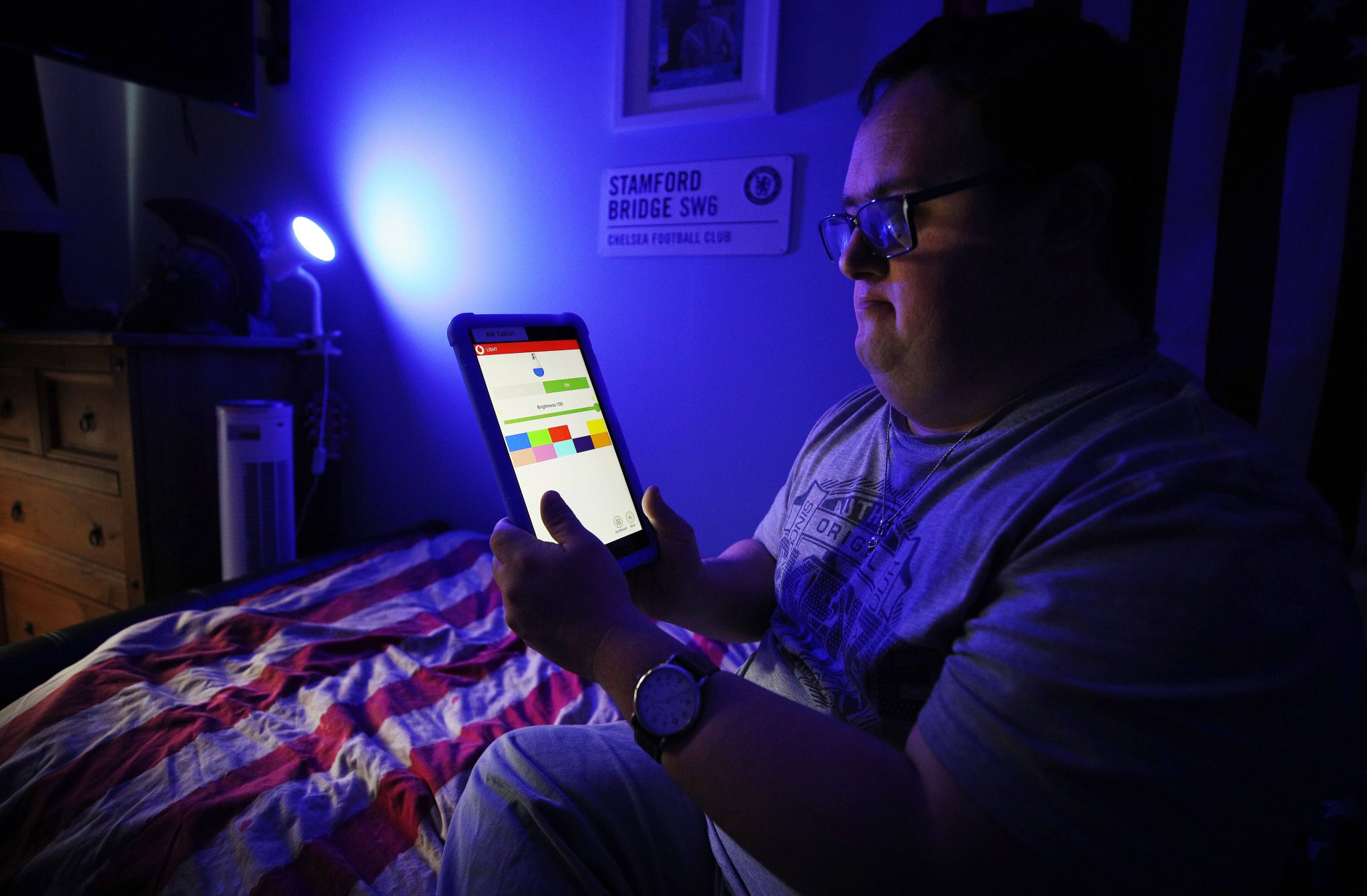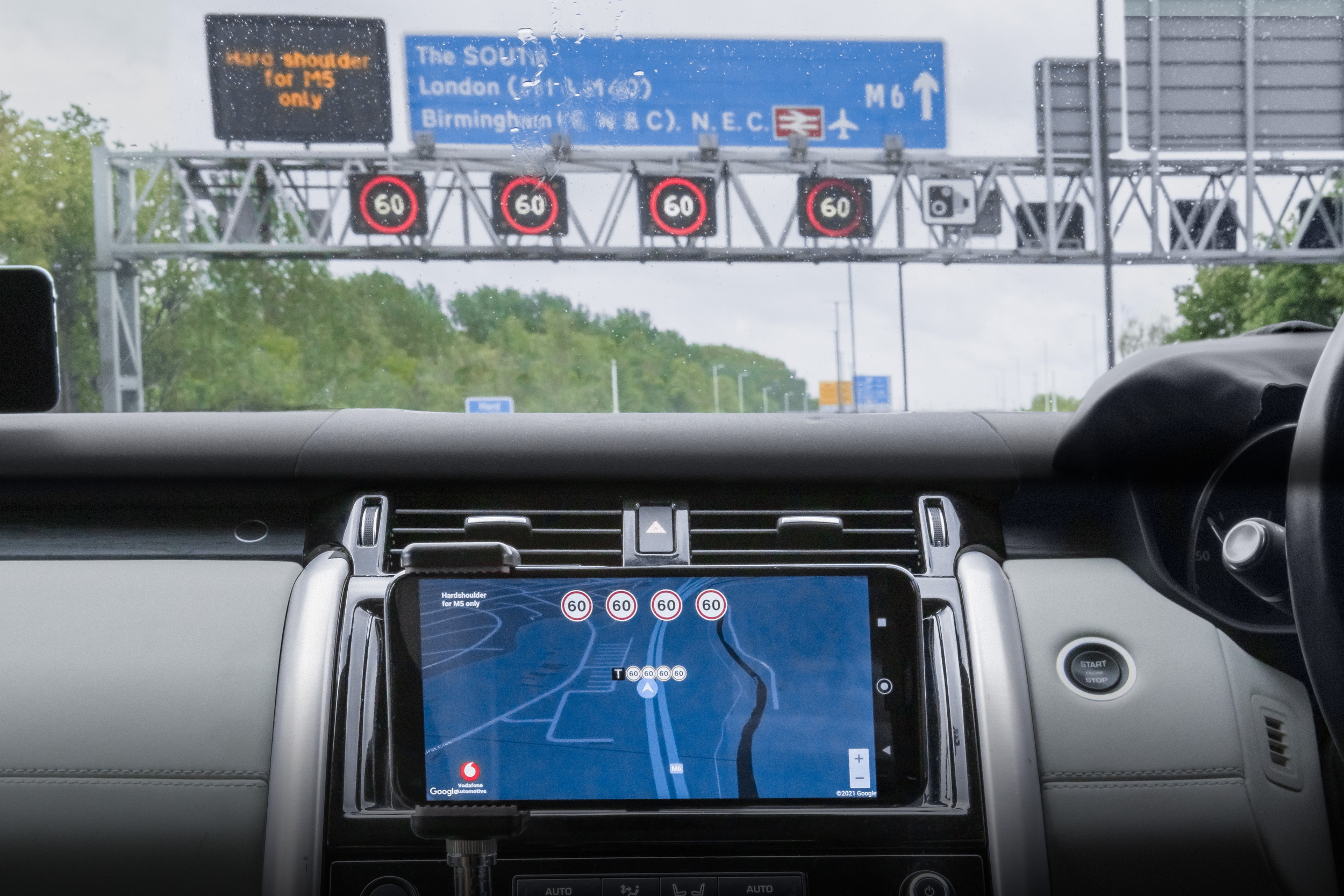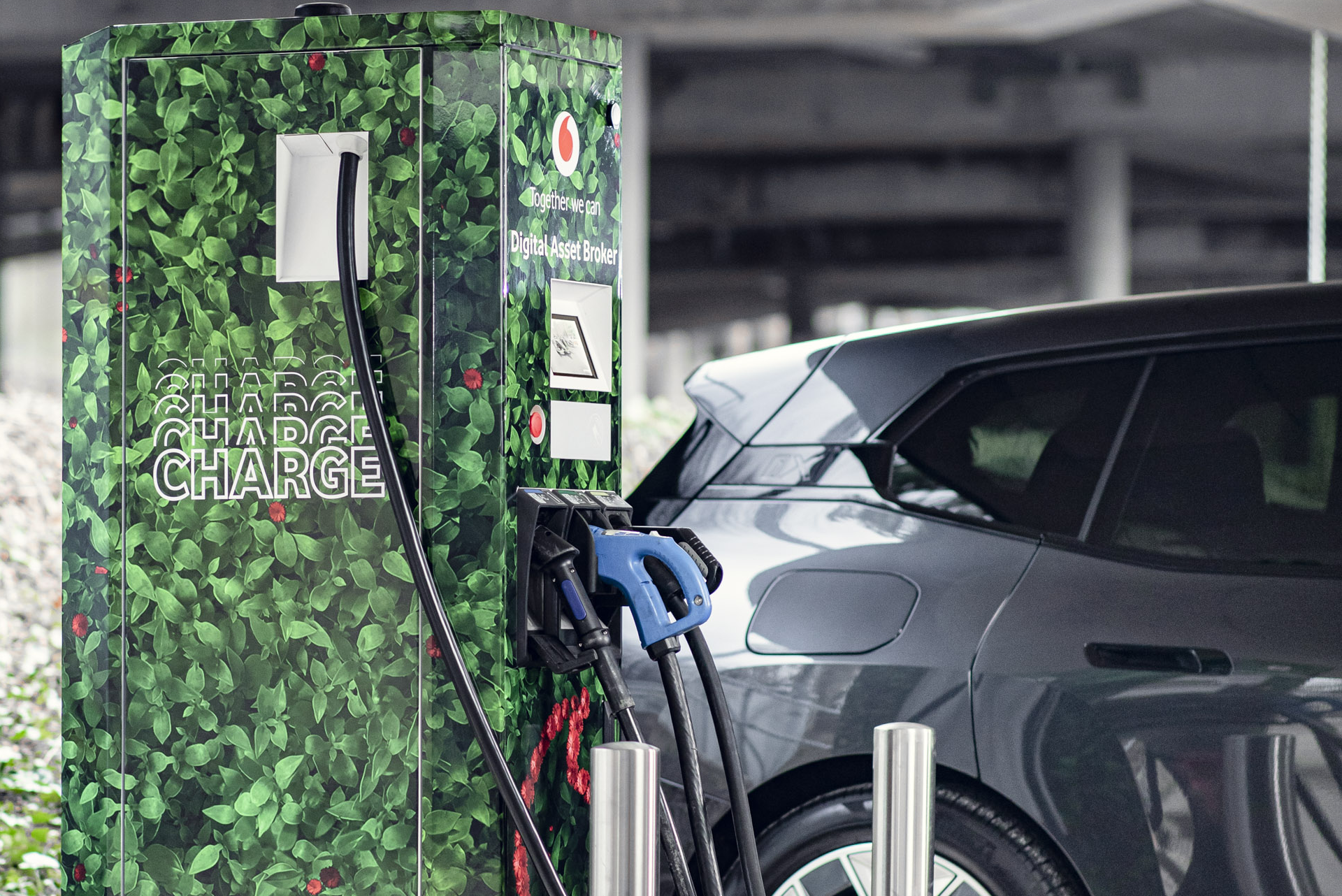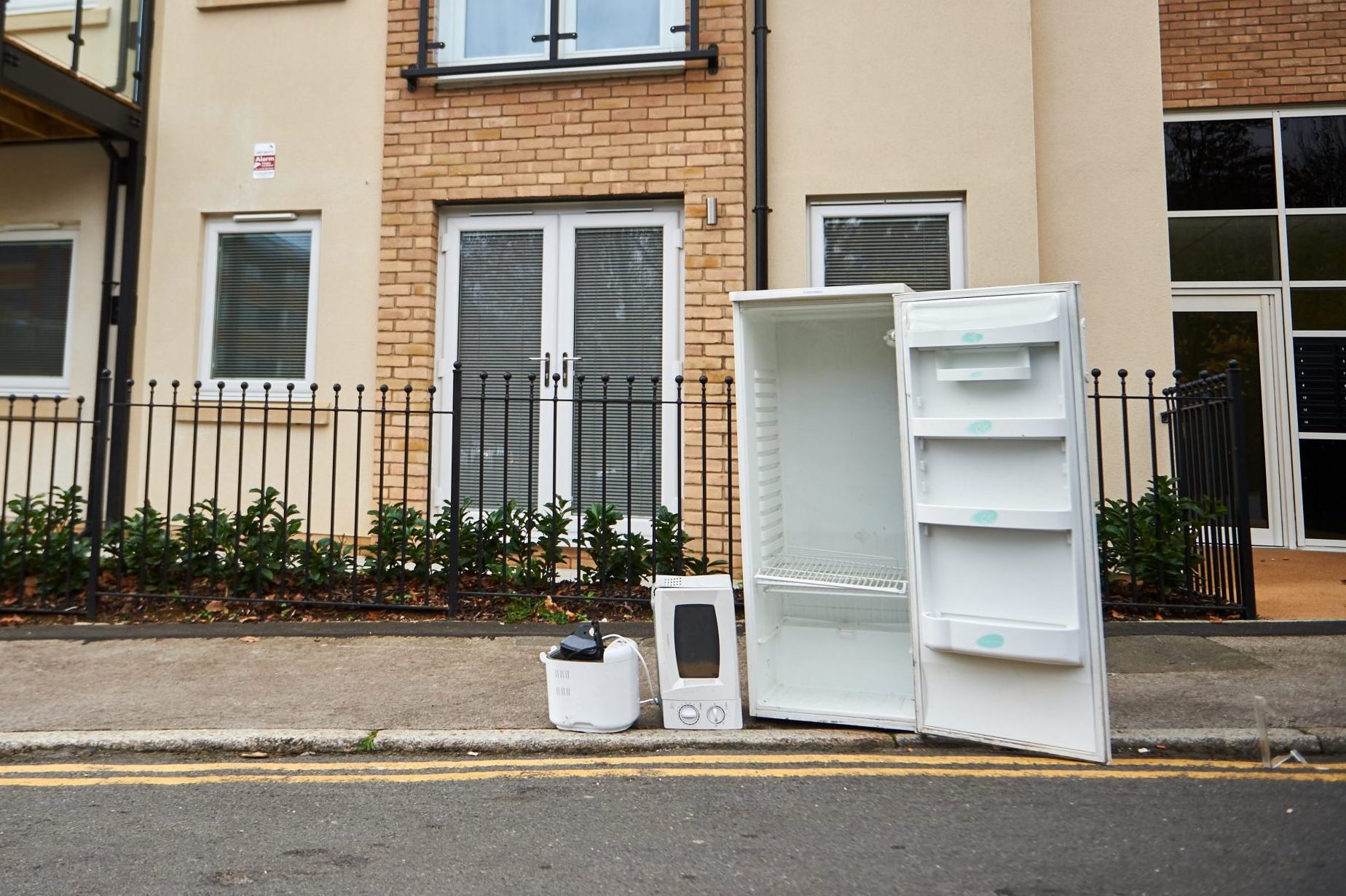
By James Manser, Editorial & Content Team
We invited the BBC’s Click programme to Loughborough recently to visit Adam Miller, who has Down Syndrome and dyslexia, to find out how he’s using Vodafone tech to help him lead a more independent life.
When we arrive, Adam tells us it was his birthday a couple of days ago. “We made blueberry muffins,” he says proudly.
He and his mum Nicky added a muffin recipe to the app he uses to help him plan and manage his day. He took the muffins with him to college and shared them with his friends on his birthday.
“He really enjoyed that,” says Nicky.
Since 2018, Adam, 33, has been a part of the Connected Living project, a joint venture between Vodafone Business Ventures and Mencap, the learning disability charity. He’s been helping to develop and test out apps and a range of Internet of Things (IoT) devices at his Supported Living accommodation in Loughborough.
The aim of the tech is to give people with learning disabilities more agency and independence, while enabling support workers and carers to keep a remote eye on the people they look after.
Adam took BBC Click presenter Paul Carter through all the things he could do on his Vodafone MyLife app, which he accessed via a tablet device. Adam can control the lighting in his room, set up to do lists, video call support staff, and manage his activities using a personalised diary management tool.

“I like hi-tech!” Adam told the BBC.
Nicky told Vodafone News that the app had “helped Adam with getting up in the morning, reminding him to shower without staff having to prompt him. He now does this independently.
“It also helps him to know which staff will be there during the day, what time they’re coming and where he’s going during the day.”
But getting to grips with the technology has been a challenge, Nicky admitted.
“We’re still learning how it can help him,” she said.
As part of the Connected Living project, Vodafone has developed a number of features including:
- My Room – managing smart plugs, smart locks and smart lights.
- How To – supporting workers to create visual guides for everyday tasks.
- My Day – a personalised diary management tool that enables users to create daily reminders.
- My Talk – providing those with speech problems another way to communicate, via personalised images, text and a speech function.
- Call Support – prompt remote support via a digital “panic button” that enables two-way video calling between residents and support workers.
- To Do List – creating easy to-do lists.
- My Front Door – answering the front door and checking who is calling from anywhere in the house.
- Activity Sensors – detecting unexpected movement and alerting support workers.
- Smart Locks – providing residents privacy and a sense of security in their own rooms.
“A lot of it is stuff quite a lot of people are familiar with,” Helen Lamprell, Vodafone UK’s General Counsel and External Affairs Director, told BBC’s Click. “Smart lighting and smart locks are not particularly new concepts, but what we’ve done is package it all together and put it into a user interface that is very user-friendly and intuitive to use.”
There are more than 1.4 million people living with learning disabilities in the UK – about 2.2% of adults and 2.5% of children. Some need more help than others.
For example, someone with a mild learning disability might only need support applying for a job, whereas someone with a severe learning (or physical) disability might need full-time care and support with every aspect of life. So the level and sophistication of the tech is adapted according to the needs of the individual.
The Connected Living project has seen technology being installed and tested in 48 homes in 30 Mencap locations across the UK so far. And it is helping about 130 people lead more independent, more fulfilled lives.
“You and I, we just want to be independent and do our own thing,” Steve Baker, Mencap’s Operations Drector told the BBC. “And if technology can help people to do that then it means that you’ve got great control, you’re feeling more independent.
“The amount of confidence that is increased in people is really fantastic.”
- Watch Adam and Nicky on BBC Click’s programme here.
![Light bulb with Sterling Pound symbol on wooden table [Adobe Stock] stock illustration of a light bulb, with a Sterling Pound symbol as its filament, sitting on a wooden table](https://www.vodafone.co.uk/newscentre/app/uploads/2024/01/Light-bulb-with-Sterling-Pound-symbol-on-wooden-table-Adobe-Stock.jpg)



